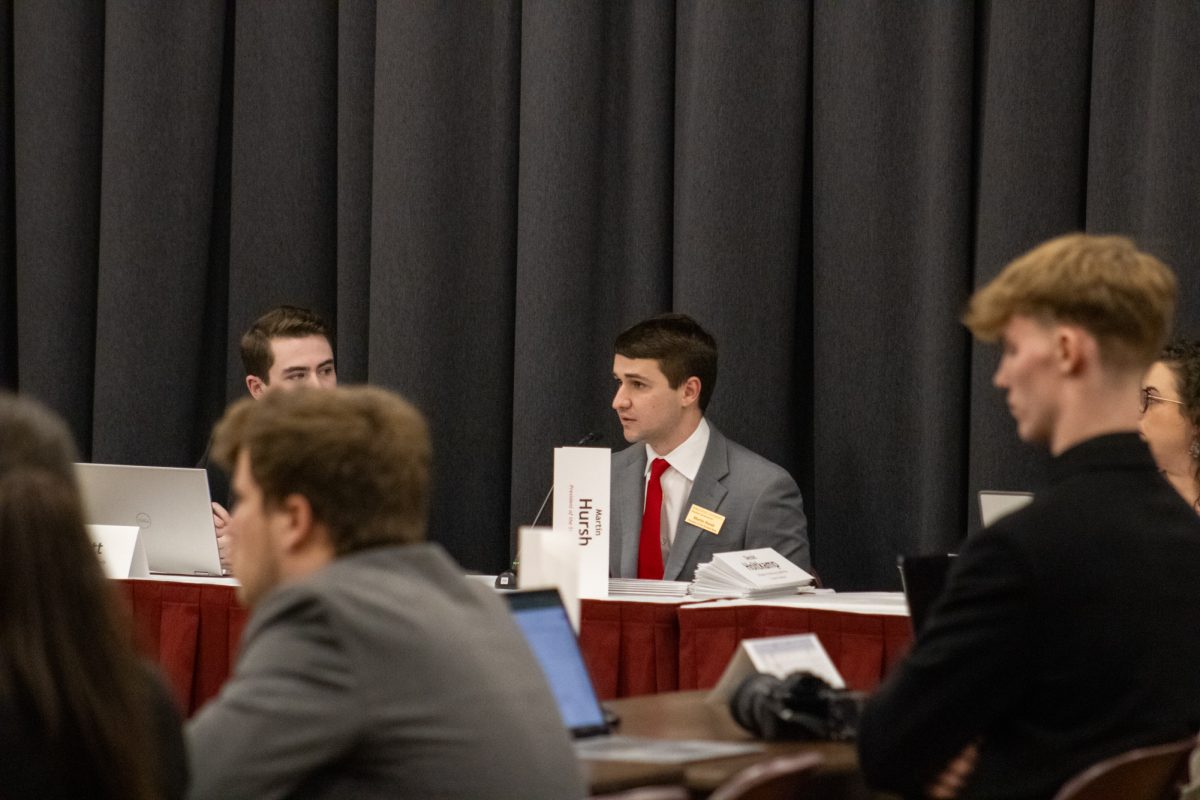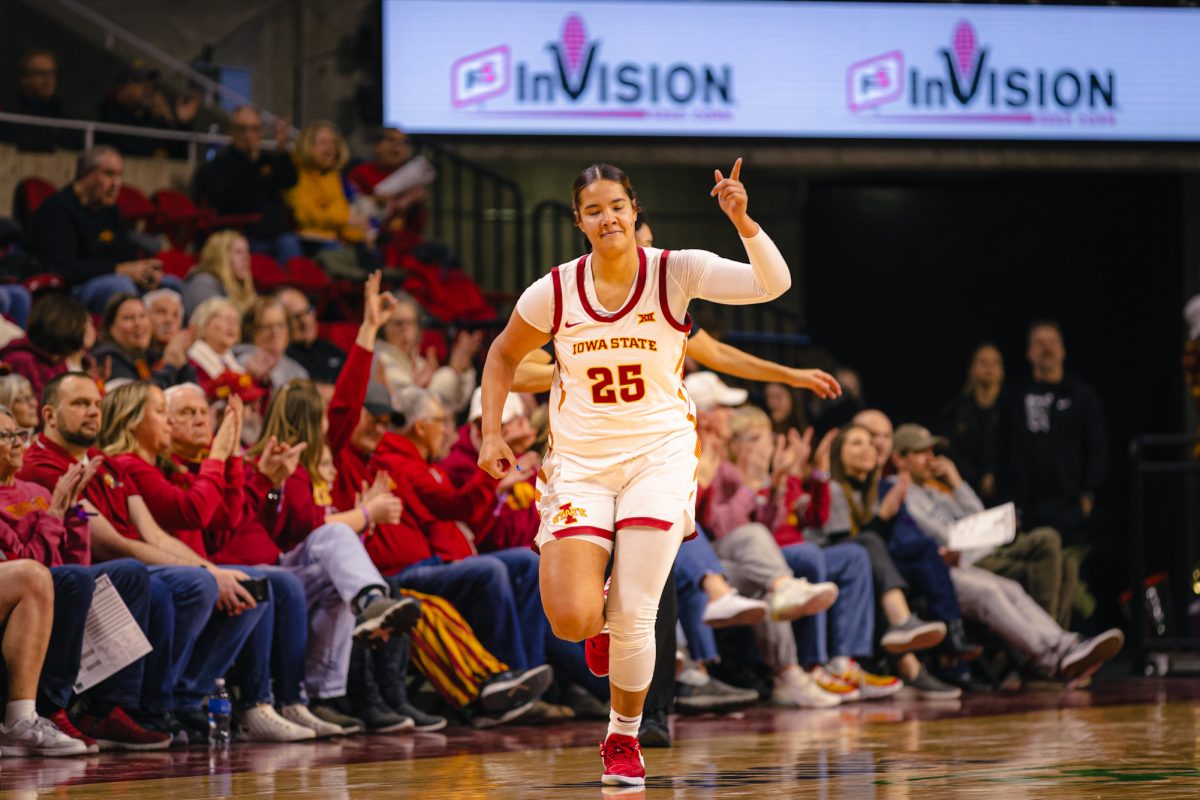Globalization class examines ties between business, culture
February 19, 2007
In the ever-growing globalized world, it’s easy to get lost in the shuffle. A new class to be offered at Iowa State next fall may help educate students on the continually globalizing world.
Fall 2007 marks the installation of a new globalization course, offered to seniors and graduate students. The course is three credits and will work for international perspectives or the new engineering studies minor.
The course was developed by Jim Bernard, distinguished professor at the Virtual Reality Applications Center, and Mark Rectanus, professor in world languages and cultures. The program has been offered as an experimental course starting in fall 2005.
“Jim comes from a technical engineering side, and I come from a cultural side, which is interesting,” Rectanus said. “Students from any discipline or major can take [the course].”
Globalization itself is a multi-faceted subject, allowing many differing view points on the actual definition of the subject. Rectanus describes the course not as strictly business-related, but said it examines how the borders between business and culture collide, such as in the spread of Coca-Cola and cell phone usage in Morocco.
Bernard said the philosophy behind the class and globalization is really about how communication moves through the world.
“Bandwidth is now, for all practical purposes, free. That means that communication is robust and free, and our students’ colleagues and competitors can and will [communicate] anywhere in the world,” Bernard said.
Bernard also said corporate speakers in the last round of the course had said if you want to be a leader in their company, you will have to plan to live overseas for years at a time.
“[In globalization] economic, religious and cultural impacts are all interrelated. We examine flows of business and technology,” Rectanus said. “We examine how globalization impacts students, how it impacts the job markets and how the world will look in one year, 15 years and 20 years from now.”
The course regularly hosts as many as 25 guest speakers in the field, including Newt Gingrich and globalization novelist Robert Reich. Thomas L. Friedman’s book “The World is Flat” is an example of literature on the subject of globalization. Rectanus also said they have had speakers from local businesses, such as Caterpillar and Rockwell Collins.
Students taking the course will work in groups, sometimes with off-site groups, some in the private sector and with some local business, discussing the ever-shrinking world of communication and business.
“Students have to get used to working with people off-campus because businesses are now working more in global teams,” Rectanus said. “Students may know a little about globalization, but it [the class] gives students the ability to work first hand with people who are out there who are doing it in areas such as education.”
Some students who took the experimental course have obtained internships. ISU alumna Emily Sorrick interned at Compressor Corporation Controls in Des Moines, and is employed there. Sorrick will head to Italy in April for a year to work at the CCC branch there.
“The globalization course offered at ISU is an excellent opportunity to learn about how technology and current events are shaping the world that our generation is going to live in. [In] each lecture there is a different speaker which keeps things interesting,” Sorrick said. “It’s rare to get into a career that doesn’t present some kind of cross-cultural opportunity. Globalization addresses a lot of the issues that surround the fact in a way that is engaging and balanced.”
Rectanus said internships in the business world can be a huge eye-opener and reinforcing experience for students.
“Students involved in internships are getting involved in the world,” Rectanus said. “They see direct relationships with what’s going on around the world and the types of things that businesses are doing, such as how business use communication to integrate people into their companies.”
One caveat inherent of the program, Rectanus said, is that it doesn’t teach everything about the huge subject of globalization.
“We’re not saying ‘come to this class, we have all the answers.’ Most of the public speakers admit they don’t either,” Rectanus said.






